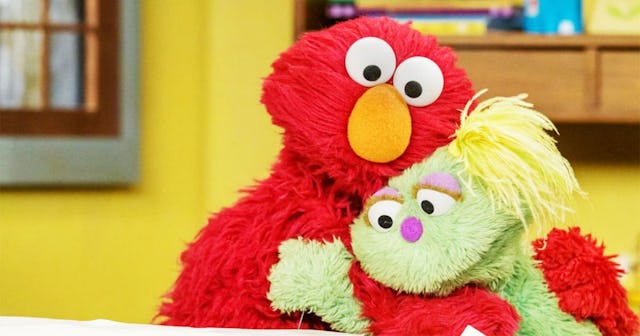I Could Have Used A Friend Like Karli When I Was A Kid

Fall of ’88 was Dad’s first stomach surgery. I was six. It was to remove an ulcer. I don’t remember him going into the hospital or him coming out. But what I do recall was about three months after his first stomach surgery, Dad sat on the living room floor, shoeless, his back against the base of the sofa, legs crossed.
I sat next to him. We were alone. The room was reflected in our weighty wooden RCA home theater. Dad stared past his reflection, eyes like a one-way mirror, and I felt certain something was hidden behind his gaze, images or shadows or something. Face closer than necessary, he whispered a secret.
“I feel real good,” he said. “Pretty damn OK.”
He slouched, mouth twisted, head to the side, lips smacking with each suck of air. His eyes drifted shut, but his lazy smirk kept resurfacing, sloppy and leaning to one side. This was the first time I can remember seeing him high on painkillers.
He changed from month to month. Sometimes he was the same old Dad. Other times he started slow, staying in bed until late morning, a pillow between his legs. By early evening he stumbled about and slept on the sofa. Each day, a little less of the old Dad shined through, and his face gradually gave way to clouded, slumping features.
Just over 10 years later, he became an early tragedy of the opioid epidemic, and let me just say, I could have used a friend like Karli on Sesame Street. I was almost 30 years old before I even heard the term “opioid epidemic,” so to say that I felt in the dark as a child is an understatement. To have a children’s show tackle this unfortunate topic is pretty wonderful to hear as the son of a former addict.
For those of you who don’t watch a lot of Sesame Street (which I can understand), Karli is a new character on the show. She is an adorable little Muppet with yellow hair who is currently in foster care because her mother is struggling with addiction.
Jeanette Betancourt, senior vice president for U.S. social impact at Sesame Workshop, the nonprofit organization behind Sesame Street told NBC News, “How they’re impacted by addiction is often something that we don’t hear about or, more importantly, don’t hear [in] a children’s voice or perspective.”
I can’t speak for everyone who was raised by an addicted parent, but for me, personally, I’d never felt so lost in my whole life. And more importantly, I’d never really felt so alone. I didn’t understand why my father was acting the way he did. Nor did any of the family and friends around me. Having a parent addicted to opioids is hard enough, but trying to find someone who can understand your struggle is even harder.
I was almost 30 years old before I even heard the term “opioid epidemic,” so to say that I felt in the dark as a child is an understatement.
As far as I knew, I was the only child who was trying to make his way through life with an addicted parent. Naturally, this wasn’t true. But I didn’t know that, and having someone, even a Muppet, speak about her struggles would have really helped me to navigate what was already a very complex and difficult situation that impacted my life in ways that, even now at 37 years old, I still struggle to define.
Karli is part of a long line of Sesame Street characters that have been strategically placed in the show to help children struggling with very real and very difficult situations. In 2011, Lily, who lives in poverty, showed up in a special episode to tackle childhood poverty and food insecurity. She returned last year in some of the Sesame Street in Communities videos as a homeless Muppet. In 2013, Alex became the first Muppet to have a dad in jail.
I think one thing we don’t often recognize is that one child can actually relate with many of these characters. Due to my father’s opioid addiction, he was in and out of jail most of my childhood, our family often struggled to find enough to eat, and I did spend a short time homeless, going from friends to family members, eventually being taken in by my grandmother at age 14.
Having a parent addicted to opioids is hard enough, but trying to find someone who can understand your struggle is even harder.
But I think what is most important is not only that these characters can help struggling children feel less alone, they also help those not struggling with the same difficult situation find empathy and compassion for those that do. When children found out about my father, sometimes they made fun of me… sure. But mostly, they just avoided me. They treated me as an outsider due to circumstances that were out of my control, and in some ways that was almost as painful as having an addicted father.
So to the creators of Sesame Street, from one child who lived it, I want to say “thank you.” You are doing more good than you know. While Karli might not fix the opioid addiction, she surely is making it easier for children to live with it. And that is truly valuable.
This article was originally published on